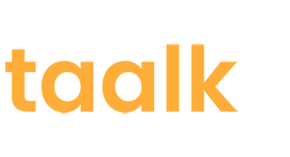Downtime Drives Success: Why Even Founders Like Bill Gates Prioritize the Pause
In the relentless pursuit of entrepreneurial success, there’s a pervasive myth that constant hustle and ceaseless work are the only paths to the top. Many founders wear burnout as a badge of honor, believing that every waking moment must be dedicated to their venture. However, a deeper look at the habits of the world’s most enduring and impactful leaders reveals a counter-intuitive truth: strategic downtime isn’t a luxury; it’s a critical component of sustainable success. Even titans like Bill Gates, renowned for his intense focus, understand the profound power of stepping back to move forward.
The idea that “downtime drives success” might seem contradictory to the startup ethos of working 80-hour weeks. Yet, ignoring the need for rest and mental recalibration is not just unsustainable; it’s actively counterproductive. Chronic stress leads to exhaustion, impaired judgment, reduced creativity, and ultimately, burnout – a state that can cripple even the most promising ventures. The most successful entrepreneurs don’t just work hard; they work smart, and working smart inherently includes dedicated periods of rest and reflection.
The Dangers of the “Always On” Culture
The entrepreneurial journey is often romanticized with stories of founders sleeping under desks and sacrificing everything for their vision. While dedication is vital, this “hustle culture” often overlooks the severe consequences of chronic overwork. Signs of entrepreneurial burnout are insidious and impactful:
- Persistent Fatigue: Feeling tired even after a full night’s sleep.
- Cognitive Decline: Struggling with concentration, decision-making, and problem-solving.
- Loss of Motivation: The initial passion for the work wanes, replaced by a sense of dread or apathy.
- Irritability and Detachment: Relationships suffer, and the founder feels disconnected from their business and team.
Even figures like Elon Musk have admitted that running on minimal sleep has negatively impacted their performance. The takeaway is clear: working smarter, not just harder, is the true key to long-term success.
How Downtime Fuels Success: The Science Behind the Break
There’s robust scientific evidence supporting the benefits of breaks and downtime. Stepping away from work, even for short periods, has been shown to:
- Boost Cognitive Function: Allows the brain to process information, consolidate memories, and make connections that might be missed during intense work periods.
- Improve Problem-Solving Skills: The “aha!” moments often strike during walks, showers, or other periods of relaxed mental state because the brain is given space to breathe and form new neural pathways.
- Spark Creativity: Disconnecting from immediate tasks allows for mind-wandering, which is a powerful catalyst for innovative ideas.
- Reduce Stress: Regular breaks prevent the accumulation of chronic stress, leading to better mental and physical health.
- Enhance Focus and Productivity: Short, intentional breaks can improve focus, prevent mental fatigue, and lead to higher quality output when work resumes.
Lessons from the Top: Bill Gates and the Art of Strategic Disengagement
Bill Gates, the co-founder of Microsoft, is perhaps one of the most famous proponents of structured downtime. His legendary “Think Weeks” are a prime example. For one or two weeks each year, Gates would retreat to a secluded cabin, completely disconnecting from his daily responsibilities. During this time, he would dedicate himself solely to reading, reflecting, and brainstorming new ideas, often emerging with pivotal strategies that shaped Microsoft’s future.
Gates’s approach highlights several key aspects of effective downtime for founders:
- Intentional Disconnection: It’s not just about stopping work; it’s about actively disengaging from the demands of the business. This means setting boundaries – no emails at midnight, no constant notification checks.
- Dedicated Space for Reflection: Physically removing oneself from the usual work environment can be incredibly powerful for shifting perspective and fostering deep thinking.
- Fueling the Mind: For Gates, reading was a primary vehicle for downtime, allowing him to absorb new information, explore different fields, and stimulate his intellect in ways distinct from his daily work. Many successful leaders, including Jack Ma and Elon Musk, also adhere to the “5-hour rule,” dedicating at least an hour a day to learning.
- Prioritizing Well-being: Gates’s evolution as a leader, particularly in his philanthropic work, reflects a deeper understanding that success is multi-faceted and includes personal well-being and a broader impact.
Crafting Your Own Sustainable Path to Success
For founders grappling with the relentless pace of startup life, integrating downtime is not a weakness but a strategic imperative. Here’s how to incorporate it effectively:
- Schedule Downtime: Treat rest like an important meeting on your calendar. Block out time for it and stick to it.
- Take Micro-Breaks: Even 5-10 minute breaks every hour can significantly improve focus and prevent mental fatigue. Stretch, walk around, or simply close your eyes.
- Engage in Non-Work Activities: Pursue hobbies that genuinely allow you to disconnect. Whether it’s exercise, creative arts, mindfulness, or spending quality time with loved ones, find activities that recharge your battery.
- Set Clear Boundaries: If working from home, create a designated workspace and physically step away from it when the workday concludes. Resist the urge to check emails “just one more time.”
- Prioritize Sleep: Quality sleep is the foundational element of sustained performance. Aim for consistent sleep patterns and create a conducive environment for rest.
The entrepreneurial journey is a marathon, not a sprint. Success isn’t achieved by pushing to the point of collapse, but by strategically managing energy, fostering creativity, and making clear-headed decisions. By embracing the wisdom of leaders like Bill Gates, founders can discover that the most productive breaks are not a pause from success, but the very fuel that drives it.
Are you a startup founder or innovator with a story to tell? We want to hear from you! Submit Your Startup to be featured on Taalk.com.








